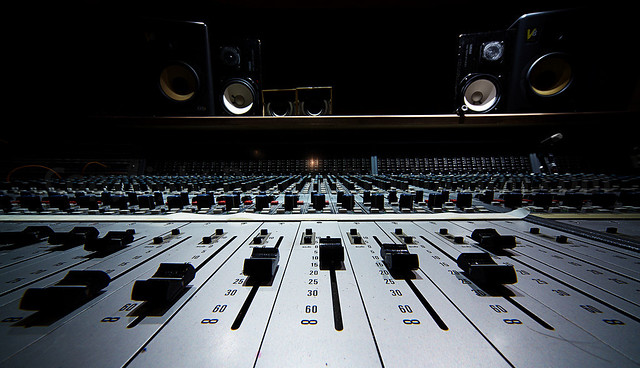Streaming n' Apple Peeling
Thinking With My Industry Hat On
Spotify and Apple Music, et al
Streaming is, for the most part, the only way the business moving forward. It feels like things will never get back to the golden days, where hard working Songwriters and Artists can expect to make a seriously decent living out of music. At one point, having a career in music was a decent prospect for those who were willing to work hard and focus on their skills. Nowadays, it feels Writers work just as hard, yet the financial rewards are just not the same. Publishers have become far more choosy with whom they sign and give advances to, if they do, the tendency is to give a writer no living wage, yet expect the creators to work hard as ever who take a large slice of a the cake.Generally, music has become much less of a commodity, yet we all still love and cherish it. Nowadays, it's more of a background soundtrack to our lives, something that's always there, on tap, apparently for free.
Yes, music is very important to us emotional human beings - most of us rely on it to help with our mood, exercise, focus, inspiration and so on. Yet, as a society, we pay more money for our morning caffeine habit in the morning, than feel the need to rush and buy our favourite song we heard on the car radio.
Spotify has hit the big time in the last few years. From humble beginnings, it's become a one of the global leaders in music streaming, with a new age take on the music business model. In recent times, in the news and amongst the Songwriter and Producer fraternity, it's been hailed as the devil reincarnate. Spotify make huge claims that Artists and Labels have never been paid more than they are now. The opportunity to be discovered as an unsigned, indie Artist is even more powerful too. Apparently, people share their music more than ever, giving rise to records potentially earning more money.
In truth, whilst what they say might have some element of truth - the saturation of music industry has grown exponentially; more people wanting to become Artists, Writers and Producers and music technology now allows anyone with a laptop and mic to record a song. Still, under major Labels and in the mainstream market, they still remain dominant, controlling the air waves with huge PR campaigns.
It has also come to light that most of the major labels are in fact silent investors in Spotify and other streaming companies. This fact, in-turn makes Songwriters sick to their stomachs, because not only are they receiving new-digital streaming royalties based on the old physical sales model, but major Labels are collecting from the back end via their investments, and not feeding it back down to the content creators. It seems they're denying the talent their just deserts and paying themselves double.
As I write this, Apple Music has just launched in the past 2 weeks. It's having teething trouble with it's software - lots of iPhone and Mac users are complaining they've lost their playlists. DJ friends of mine who've built up playlists over years, are livid that they've now potentially lost their curated playlist collections. No wonder Apple Music has offered the service free for 3 months. Did they know there'd be roll out problems? Who knows, but it'll no doubt get rectified by the release of ios9.
Whilst the songwriter fraternity are scathing at Spotify, regarding their new micro royalty payments, YouTube, Deezer, Rdio, Pandora all have similar, for better or worse, royalty ratios. Why the witchhunt for Spotify when all similar companies are in it together? Half the problem so far with the industry, is cashflow and keeping track of royalties. We have to trust the none-too-transparent accounting and audit payment systems these companies have in place. Publishers like Kolbalt are hailing the new digital streaming revolution and have engaged brand new collection technologies to keep track of all those micro-royalties. They've also offered Songwriters a month to month royalty payment schedule, which potentially could help stem Writer's cashflow problem. Kolbalt, however are extremely fussy with whom they sign and administrate. I've heard that only larger earners seem to get in. Hopefully, other smaller sub-publishers will do deals and use this technology and offer all Songwriters and Artists a chance to collect their well deserved payments too.
Apple Music also have very similar royalty payment ratios to all the other streaming services, yet they seem more willing to negotiate with artists and writers - for e.g the recent Taylor Swift spat, where she ousted and prompted Apple Music to stand up and pay the artists/writers for streaming content throughout their 3 month free trial. They listened! Happily, Apple Music are taking a stronger stance against 'Freemium' services and are now solely subscriber based service, for a monthly fee of £9.99 you get unlimited music. Whilst, far from perfect, it seems fairer way to play and pay content creators potentially more money. It's also far more transparent in the knowledge people will actually pay for this service and not rely so much on undisclosed advertising revenue income, like Spotify does.
Only the future can tell where the value of music will go. I hope creators take time to learn their industry and learn the business side. It's a rocky road ahead. Lets see what happens!





